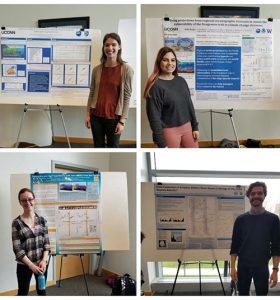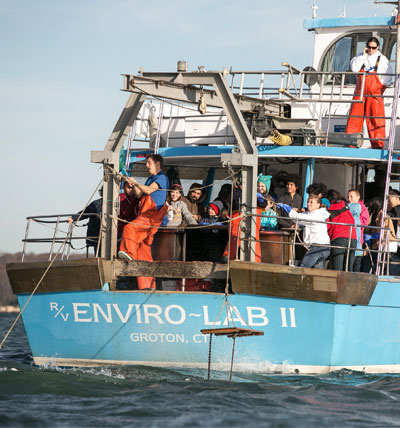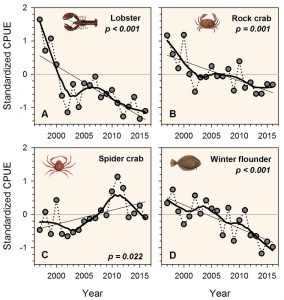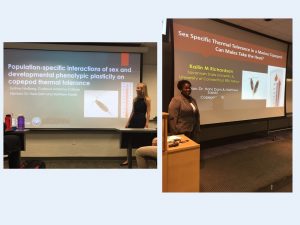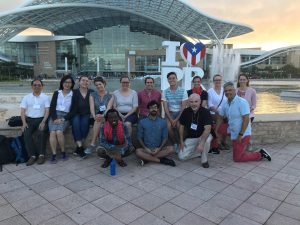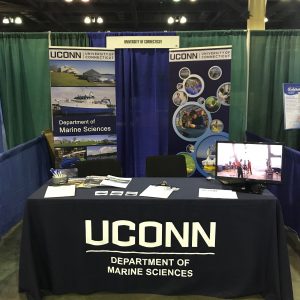In collaboration with Project Oceanology, the graduate students from Department of Marine Sciences hosted workshops for middle schoolers to teach them about marine sciences and research being done in the department. Students extracted DNA from strawberries and put it in necklaces for all to see. Another workshop had students identify plankton under microscopes.
Thanks to students from the McManus, Lin, and Dam Labs for organizing and running these activities, and inspiring the next generation of scientists.
